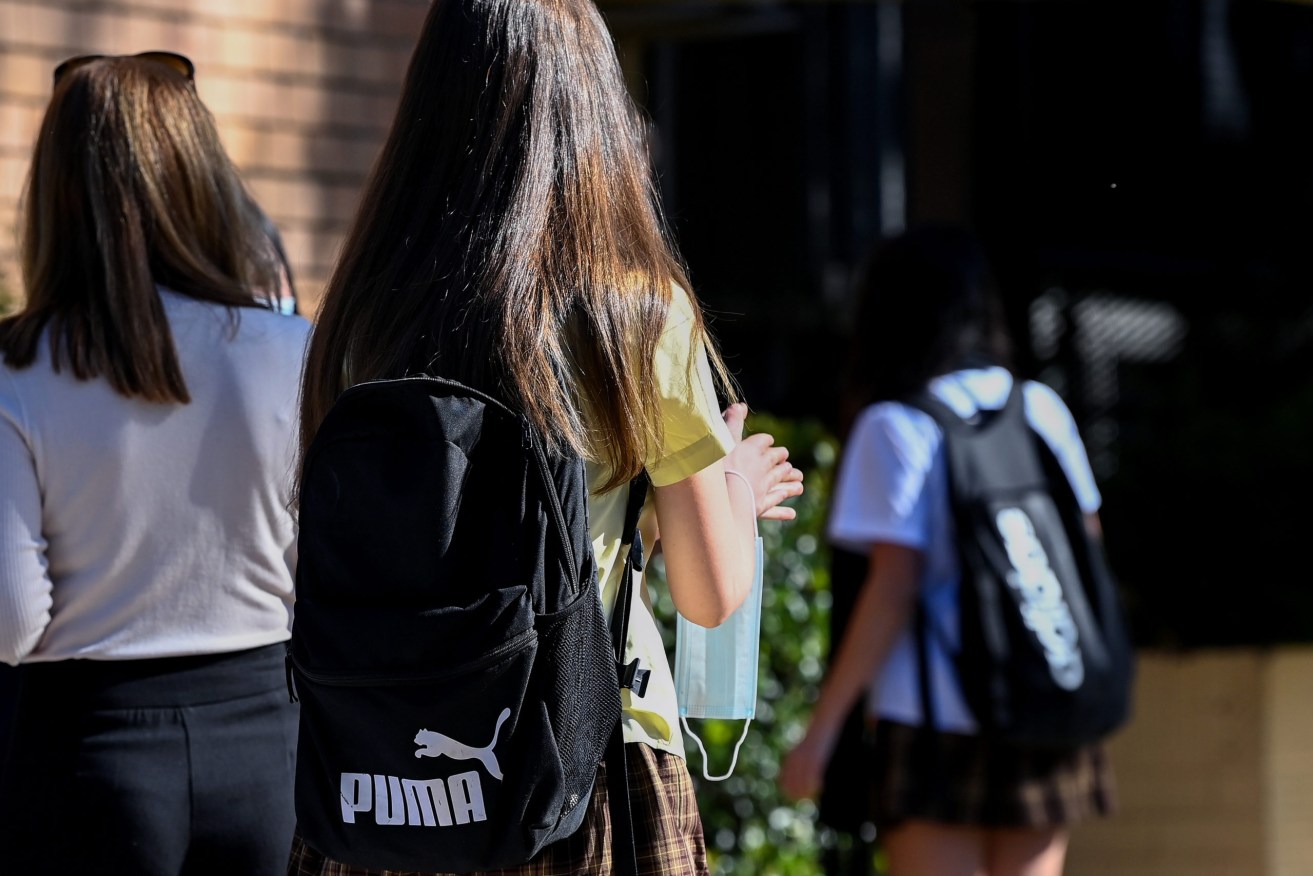One in five SA children unlikely to get vaccinated
A “concerning” 20 per cent of South Australian children aged over 12 say they are unlikely to get vaccinated against COVID-19, with fears about needles, potential side-effects and their parents’ views fuelling reluctance, a recent survey by the state’s Children’s Commissioner reveals.

Photo: Bianca de Marchi/AAP
The survey of 506 South Australian children, conducted by Commissioner for Children and Young People Helen Connolly, found 20.5 per cent were either “unlikely” or “very unlikely” to get a COVID-19 vaccine in the next 12 months, while 12.2 per cent said they were unsure.
Reasons for not wanting to get vaccinated included being scared of needles, thinking it was unnecessary given South Australia’s low case numbers, believing the risks of COVID-19 vaccination posed a bigger threat than the disease itself, a lack of information about vaccines or having parents who wouldn’t consent to vaccination.
Connolly described the results, released last week, as “concerning”, saying children living in areas with low vaccination rates, such in Adelaide’s north and west, were more likely to be vaccine hesitant.
She said almost half of children told her office that they thought 12 to 15-year-olds should be able to get a COVID-19 vaccine without parental consent, indicating that “parents and kids might be at odds in their thinking”.
A “noticeable” number of other young people, particularly girls, also reported being influenced by unfounded rumours on social media purporting that vaccines impact reproductive health and fertility.
“We need to acknowledge that these are real concerns for kids,” Connolly said.
“When you’re an adolescent everything in the future is unknown, so that creates a level of anxiety.”
Connolly’s report also found that one in three South Australian children only knew “a little” or “not much at all” about COVID-19 vaccines.
“For me it probably mirrors the adult population,” Connolly said.
“It kind of says that maybe our communication around the vaccines hasn’t hit the mark.
“We rely too much on kids going looking for information rather than our responsibility to ensure that they have that information.”
Some children who participated in the survey said they would like more information about COVID-19 vaccines to be provided through social media platforms such as Instagram, as well as at schools.
They reported feeling like information about COVID-19 vaccines was not tailored to their age group, or made readily available to them.
Connolly said it was “really tricky” to ask teachers to talk about vaccines in classrooms, but schools could make SA Health information more available to students.
“If Health has invested in having this information on its website and if it has a video, then my sense is you can make that information available in schools by playing the video at an assembly,” she said.
“It’s not creating new material but using stuff that’s already there and ensuring that it gets to kids.”
It comes after SA Health yesterday opened several vaccination hubs across schools in metropolitan and regional South Australia that are located in areas with low vaccination rates.
Students and staff at those schools are able to get vaccinated at the hubs during the school week, with the clinics also open to the broader public outside school hours.
The Government hopes the hubs will boost South Australia’s vaccination rate for the 12 to 15-year-old age group, which is currently third-lowest in the nation behind Tasmania and Western Australia.
Just 14.79 per cent of 12 to 15-year-old South Australians at fully-vaccinated, while 41.01 per cent are partially-vaccinated.
The Government plans to open up vaccinations to five to 11-year-olds before Christmas, but it is still waiting for the Australian Technical Advisory Group on Immunisation (ATAGI) to give the green light.
A copy of Connolly’s report has been sent to SA Health and the Education Department, as well as groups such as the Australian Medical Association and the SA Principal’s Association.




